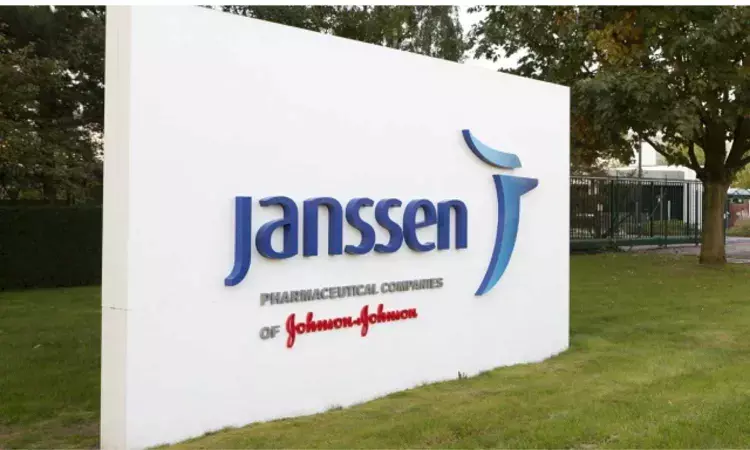- Home
- Medical news & Guidelines
- Anesthesiology
- Cardiology and CTVS
- Critical Care
- Dentistry
- Dermatology
- Diabetes and Endocrinology
- ENT
- Gastroenterology
- Medicine
- Nephrology
- Neurology
- Obstretics-Gynaecology
- Oncology
- Ophthalmology
- Orthopaedics
- Pediatrics-Neonatology
- Psychiatry
- Pulmonology
- Radiology
- Surgery
- Urology
- Laboratory Medicine
- Diet
- Nursing
- Paramedical
- Physiotherapy
- Health news
- Fact Check
- Bone Health Fact Check
- Brain Health Fact Check
- Cancer Related Fact Check
- Child Care Fact Check
- Dental and oral health fact check
- Diabetes and metabolic health fact check
- Diet and Nutrition Fact Check
- Eye and ENT Care Fact Check
- Fitness fact check
- Gut health fact check
- Heart health fact check
- Kidney health fact check
- Medical education fact check
- Men's health fact check
- Respiratory fact check
- Skin and hair care fact check
- Vaccine and Immunization fact check
- Women's health fact check
- AYUSH
- State News
- Andaman and Nicobar Islands
- Andhra Pradesh
- Arunachal Pradesh
- Assam
- Bihar
- Chandigarh
- Chattisgarh
- Dadra and Nagar Haveli
- Daman and Diu
- Delhi
- Goa
- Gujarat
- Haryana
- Himachal Pradesh
- Jammu & Kashmir
- Jharkhand
- Karnataka
- Kerala
- Ladakh
- Lakshadweep
- Madhya Pradesh
- Maharashtra
- Manipur
- Meghalaya
- Mizoram
- Nagaland
- Odisha
- Puducherry
- Punjab
- Rajasthan
- Sikkim
- Tamil Nadu
- Telangana
- Tripura
- Uttar Pradesh
- Uttrakhand
- West Bengal
- Medical Education
- Industry
Phase 3 Mariposa study evaluating Rybrevant plus Lazertinib meets primary endpoint in PFS in Non-Small Cell Lung Cancer: Janssen

Rartan: The Janssen Pharmaceutical Companies of Johnson & Johnson has announced positive topline results from the Phase 3 MARIPOSA study evaluating RYBREVANT (amivantamab-vmjw), a bispecific antibody targeting epidermal growth factor receptor (EGFR) and mesenchymal-epithelial transition (MET), in combination with lazertinib, an oral third-generation EGFR tyrosine kinase inhibitor (TKI), versus osimertinib as first-line treatment in patients with locally advanced or metastatic EGFR-mutated non-small cell lung cancer (NSCLC).
The pivotal Phase 3 MARIPOSA study met its primary endpoint with a statistically significant and clinically meaningful improvement in progression-free survival (PFS) in patients receiving RYBREVANT plus lazertinib compared to osimertinib. The combination of RYBREVANT and lazertinib demonstrated a safety profile consistent with previously reported data on the combination. A planned interim overall survival (OS) analysis showed a trend favoring the combination of RYBREVANT and lazertinib compared to osimertinib. Patients in the study will be followed for subsequent OS analyses, which will determine the statistical and clinical significance of OS.
“Positive topline results from the MARIPOSA study reinforce the potential of the RYBREVANT and lazertinib combination in frontline EGFR-mutated non-small cell lung cancer as a future standard of care,” said Peter Lebowitz, M.D., Ph.D., Global Therapeutic Area Head, Oncology, Janssen Research & Development, LLC. “As a combination targeted regimen, RYBREVANT and lazertinib inhibit critical oncogenic driver pathways and activate the immune system to address disease in multiple ways.”
“Patients with treatment-naïve EGFR-mutated non-small cell lung cancer have historically been treated with EGFR TKIs, but these agents invariably lead to resistance and disease progression when used as monotherapy,” said Alexander Spira†, M.D., Ph.D., FACP, Director, Virginia Cancer Specialists Research Institute, and study investigator. “These promising data from MARIPOSA underscore the potential for the RYBREVANT and lazertinib regimen to advance treatment beyond TKI monotherapy.”
MARIPOSA, which enrolled 1,074 patients, is a randomized, open-label Phase 3 study evaluating RYBREVANT in combination with lazertinib versus osimertinib and versus lazertinib alone in first-line treatment of patients with locally advanced or metastatic NSCLC with EGFR exon 19 deletions (ex19del) or substitution mutations. The primary endpoint of the study is PFS (using RECIST v1.1 guidelines‡) as assessed by blinded independent central review. Secondary endpoints include OS, objective response rate (ORR), duration of response (DoR), intracranial PFS, PFS after first subsequent therapy (PFS2) and time to symptomatic progression.
MARIPOSA marks the third RYBREVANT Phase 3 study to readout this year following PAPILLON and MARIPOSA-2. Janssen plans to submit these results for presentation at an upcoming scientific congress, including additional details on select secondary endpoints.
Ruchika Sharma joined Medical Dialogue as an Correspondent for the Business Section in 2019. She covers all the updates in the Pharmaceutical field, Policy, Insurance, Business Healthcare, Medical News, Health News, Pharma News, Healthcare and Investment. She has completed her B.Com from Delhi University and then pursued postgraduation in M.Com. She can be contacted at editorial@medicaldialogues.in Contact no. 011-43720751


